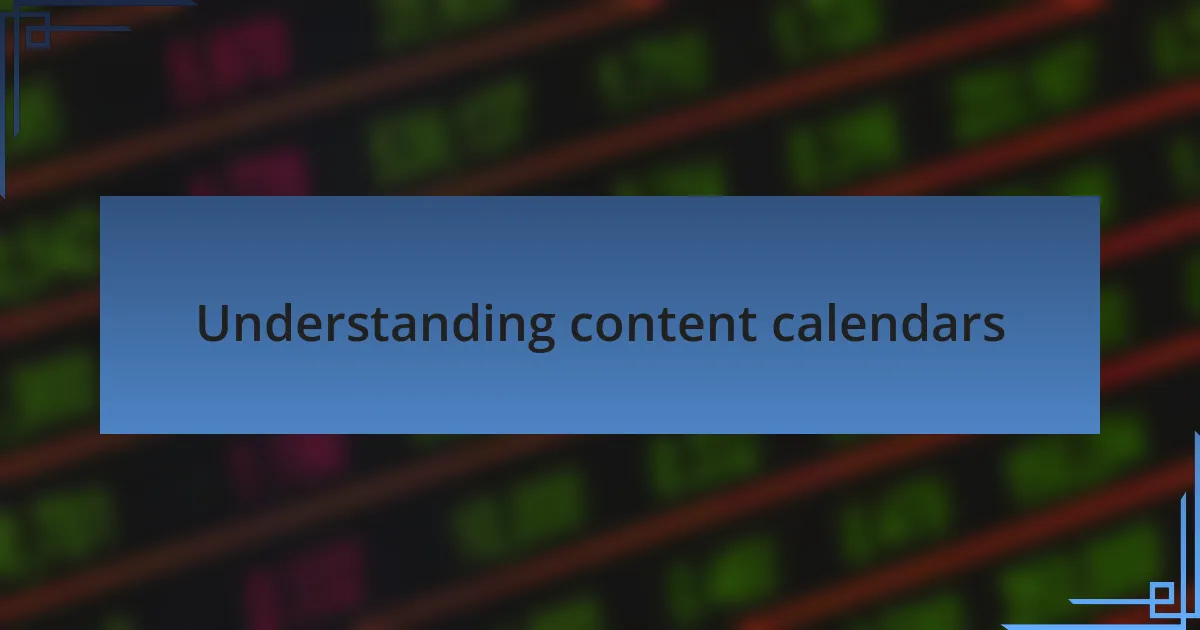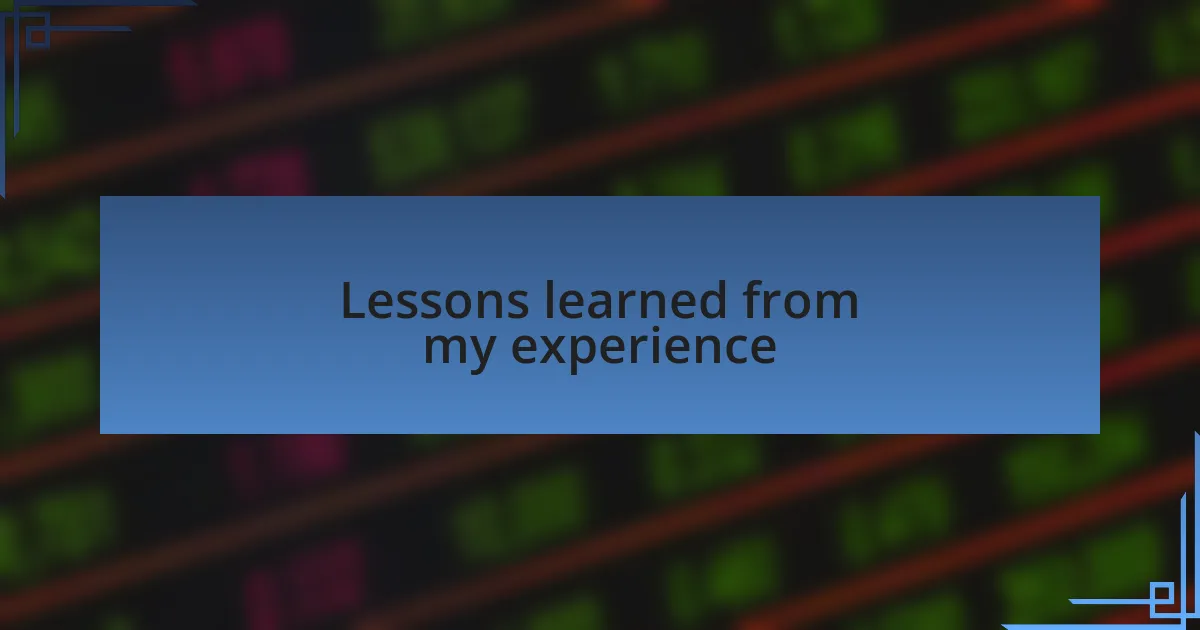Key takeaways:
- A content calendar serves as a roadmap, providing clarity and inspiration while aligning content with audience interests.
- Consistent content planning prevents erratic posting, ensuring engagement and strategic alignment with marketing goals.
- Collaboration enhances the content creation process, leveraging diverse perspectives to elevate strategy.
- Regular audits of content performance are essential for refining strategies and understanding audience engagement patterns.

Understanding content calendars
A content calendar is more than just a schedule; it’s a roadmap for your marketing efforts. I remember when I first started using one, I was amazed at how it transformed my chaos into clarity. Have you ever felt overwhelmed by the thought of what to post next? That’s where a content calendar steps in to streamline your ideas and timelines.
Each entry in a content calendar does more than mark a date; it serves as a moment of inspiration. For instance, I always jot down themes that resonate with my audience. This practice not only keeps my content aligned with their interests but also helps me to think critically about what’s truly engaging. Have you ever considered how your audience’s needs change over time? That’s why regular updates to your content calendar are essential.
Creating a content calendar can be a collaborative effort, too. When I first started sharing it with my team, I was surprised by how their input enriched the planning process. Does teamwork sound appealing to you? It can spark creativity, ensuring that no voice goes unheard, and bringing fresh perspectives to the table that can elevate your content strategy.

Importance of content planning
Planning content is crucial for maintaining consistency in a digital marketing strategy. I’ve experienced the frustration of erratic posting schedules firsthand; it often led to a disjointed narrative that confused my audience. Have you noticed how irregular posting can cause followers to lose interest? Content planning helps combat this disparity by ensuring a steady stream of relevant information that keeps your audience engaged.
Moreover, content planning encourages strategic thinking. When I sit down to map out my topics for the month, it pushes me to align my posts with broader marketing goals. For example, if I’m launching a new service, I can create a countdown of related content that builds anticipation. Have you ever thought about how incremental engagement can drive excitement for your offerings? It certainly has worked wonders for me.
Lastly, a well-structured content plan allows for better performance tracking. I remember weeks when I realized too late that certain posts were resonating with my audience. By analyzing what works best, I can adjust my future strategies accordingly. How many times have you wished for clearer insights into your content’s performance? A content calendar acts as a valuable tool for assessing your success and sharpening your focus moving forward.

Lessons learned from my experience
Creating a content calendar taught me the importance of flexibility. I faced moments where unexpected events derailed my carefully planned posts. Learning to adapt and pivot my strategy helped me see that sometimes, spontaneity leads to the most genuine connections with my audience. Have you ever shared something off-the-cuff that resonated more than a meticulously crafted post?
One of my biggest takeaways was the value of collaboration. Early on, I tended to go it alone, believing I needed to have all the answers. But incorporating feedback from my team transformed the quality of our content. Engaging others in the planning process not only sparks creativity but also brings diverse perspectives to the table. Have you felt the difference that teamwork can make in your projects?
Lastly, I’ve learned that audits are just as essential as planning. Setting aside time to review past performance has been an eye-opener. I discovered patterns I hadn’t noticed before—like how certain topics sparked more engagement. This reflection has been invaluable, prompting me to ask, “What truly resonates with my audience?” By examining what we’ve done, I can refine my approach and gear up for even greater success.